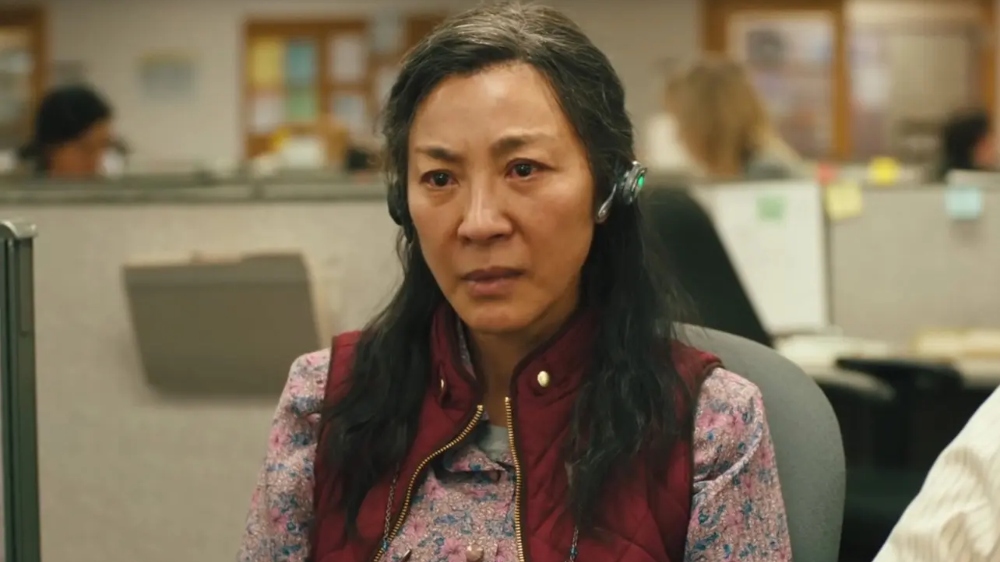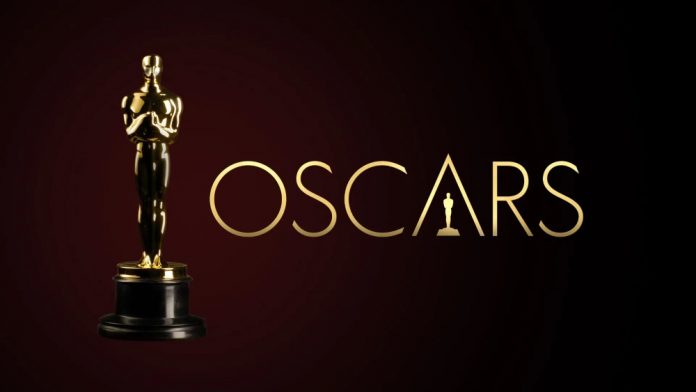Last week, the Academy of Motion Picture Arts and Sciences‘ board of governors met to discuss and vote on a series of new rules and regulations pertaining to campaigning for the Academy Awards, and on Monday, AMPAS unveiled sweeping changes that are no doubt being read closely by Oscar strategists eager to decipher them and figure out how to use them to their advantage.
For starters, the Academy’s revised guidance wisely accounts for social media, explicitly stating that “You may encourage others to view motion pictures” and “You may praise motion pictures and achievements.” So you can say, for example, “Andrea Riseborough was amazing in To Leslie. You have to see this movie!”
What you can’t say, however, is “Andrea Riseborough has got my vote,” or “Andrea Riseborough is more deserving than Viola Davis,” as the new rules forbid any discussion of voting — “You may not share your voting decisions at any point. You may not discuss your voting preferences and other members’ voting preferences in a public forum. This includes comparing or ranking motion pictures, performances, or achievements in relation to voting. This also includes speaking with press anonymously. You may not attempt to encourage other members to vote for or not vote for any motion picture or achievement. [And] you may not lobby other members directly or in a manner outside of the scope of these promotion regulations to advance a motion picture, performance, or achievement.”
In other words, it’ll be very interesting to see whether the trades will continue to run Anonymous Oscar Ballots, though I suppose it depends on whether Academy voters are willing to defy this rule. On one hand, anonymous ballots have gotten ugly, and though they’re not revealed until after voting has closed, they empower voters to really unleash on the year’s nominees, not all of whom are beloved. On the other hand, they’re wildly entertaining and they’re educational, so I think they have value. The Academy, of course, can’t regulate the trades, but I’m eager to see whether the trades back away from that practice given the new rules.

Additionally, the Academy has capped the number of “hosted” screenings during Phase 1 to just four, while banning “hosted” screenings during Phase 2, at which point the nominations have already been announced. There was previously no limit for “hosted” screenings during Phase 1 or Phase 2.
If a group of famous friends gets together at someone’s house to watch a movie and then post about it on social media, the Academy will consider that a private gathering rather than an “FYC event,” though studios aren’t allowed to organize, fund, or endorse such events.
Meanwhile, the board eliminated the cap on Phase 2 Q&As (they used to be limited to four), and it’s also allowing studios, producers, and filmmakers to refer to their films as “shortlisted” in promotional materials so long as they identify the category.
Furthermore, the Academy is showcasing its commitment to sustainability by banning all physical mailings, such as postcards and screening schedules, as all of that information will now be conveyed digitally via an Academy-approved mailing house.
The Academy has also addressed the complaints regarding the cost of uploading an awards contender to the org’s digital screening platform, the Academy Screening Room. It currently costs a studio $12,500 per movie, but going forward, films that cost less than $10 million will receive an (unspecified) discounted rate in order to make the Oscars more accessible to indie distributors that don’t have the deep pockets of, say, Disney or Warner Bros.

The board of governors made these changes in an effort “to bring clarity, fairness, and transparency to how motion picture companies and individuals directly associated with awards-eligible motion pictures may promote [them].” The board also cracked down on itself, as governors may no longer (a) publicly endorse a film or filmmaking achievement during the time between the announcement of shortlists and the close of final voting; (b) host private events or gatherings celebrating a film or filmmaking achievement; or (c) host screenings or moderate Q&As or panels unless they are convened by the Academy — unless, of course, they are directly associated with an awards film.
Apparently, these stricter rules for governors stem from a social media post from Academy President Janet Yang that appeared to advocate on behalf of Michelle Yeoh, who would go on to win the Best Actress Oscar for Everything Everywhere All at Once, though she quickly deleted it.
The Academy hasn’t made such drastic changes to its campaign rules and regulations since their inception in 1994, and while most of the reforms are to be applauded, I’m worried about the new confidential email hotline that members (and non-members) can use to report suspected campaign violations — [email protected]. The last thing we need is the Social Media Police going into hyperdrive, and I believe such a hotline could easily be abused by folks looking to shade a competitor.
The Academy noted that penalties for violations “may include but are not limited to: suspending or revoking mailing house and communications privileges; revoking privileges to attend Academy events; disqualifying a motion picture, performance or achievement for awards consideration; rescinding an Oscar nomination; revoking voting privileges; suspending Academy membership; and expelling a member from the Academy.”
Finally, AMPAS is introducing split submission deadlines for the 96th Oscars, so movies released between Jan. 1 and June 30 must submit for consideration by Sept. 15, while films released between July 1 and Dec. 31 must be submitted by Nov. 15. Additionally, anyone can now opt-in to participate on the selection committees for Best Live-Action Short Film, though at least half of all selection committees for Best International Feature Film must now be comprised of actual filmmakers, as opposed to publicists and execs.
Next year, the Academy’s “inclusion standards” take full effect, and members have been invited to a virtual meeting on May 10 to learn more about those and ask any questions they may have. Personally, I’m completely against inclusion standards, as there’s no reason a movie should be considered ineligible for Best Picture on the basis of who made it, who’s in it, or what it’s about. That’s antithetical to art, and quite frankly, the Academy should be embarrassed.



